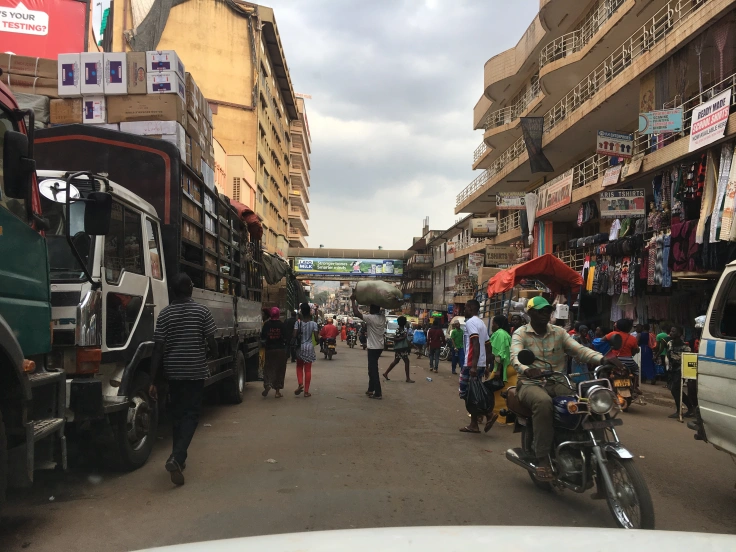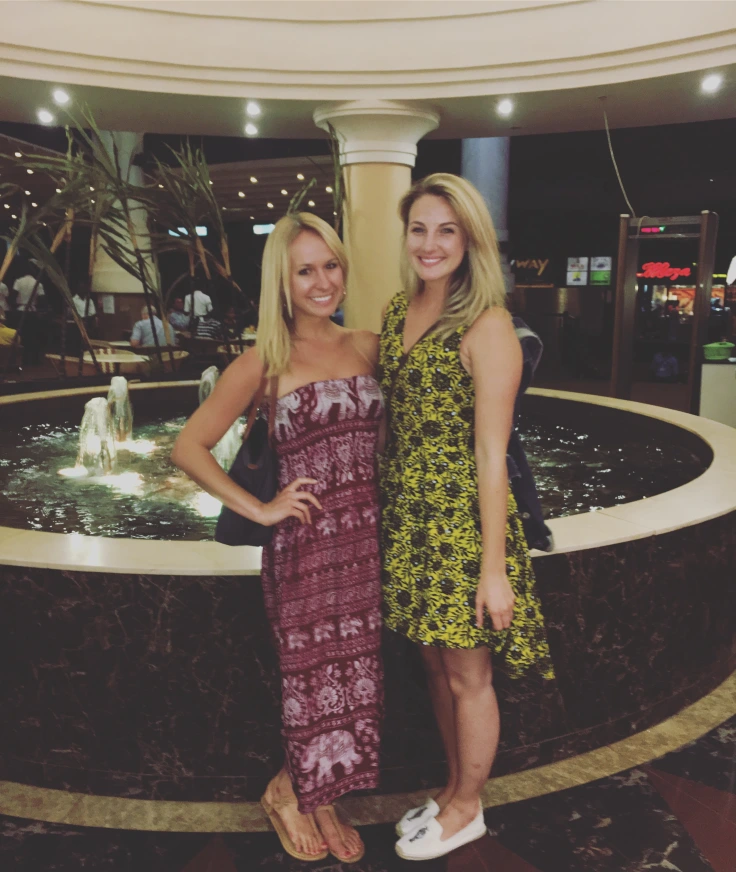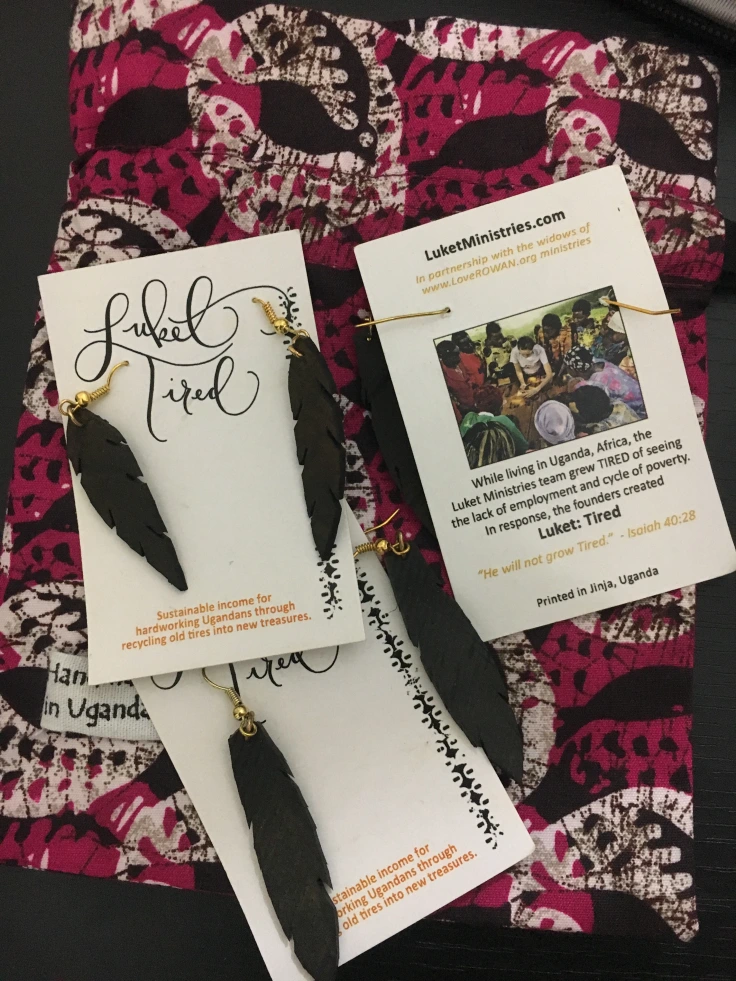
There’s a narrative about Africa told by the West that continues to leave out important details, at best, or misrepresent the continent and its people, at worst. Westerners seem to relish, to some extent, the pull at the heartstrings that comes when footage streams across the television of starving orphans wandering barefoot along the dirt roads of some remote village here. I say “relish” because seeing these images and then sending money, clothing, missionaries, or whatever makes many Westerners “feel good” because they are “doing something” to “help” those in need.
The Africa I know is strong enough to help itself.
There are orphans here. There are orphans in the United States. Many people here do have AIDS, but infection rates are on the decline. Did you see this in the news recently? Didn’t think so.
The narrative of Africa as helpless needs to stop. Businesses here can grow on their own, but not as long as foreign aid is given in such a way that depresses local economies, and not as long as African businesses are effectively locked out of the global economy. (For example, Amazon and Paypal may say they operate here, but from conversations I’ve had they don’t really, which prevents local entrepreneurs from expanding operations. Sadly, the people I spoke with believe this is all because people think they are being scammed if they make online payments to “someone in Africa” so these companies see no need to invest in infrastructure here.) Local economies here can’t grow as long as the Western world keeps telling itself Africa “needs” us more than we “need” them.
My first night in Kampala, my roommate and I ordered pizza from Jumia, an online food delivery service that functions just like Seamless, GrubHub, or Delivery.com. I have to admit I was surprised to “find this in Africa,” but really it was just the beginning of me checking my own ignorance at the door.
Most Ugandans I have met have a cell phone (and no, I haven’t been in Kampala the whole summer…I’ve travelled to some remote villages and small towns too!) There is also pretty good cell service throughout most of the country. But you don’t see this on TV back in the USA.
I’ve spent many afternoons at Kabira Country Club and Acacia Mall here in Kampala—my favorite places to relax. They are frequented by both “muzungu” families and black families. But you don’t see this on TV back in the USA. I admit these places are evidence of wealth disparity, but America has these problems too, and it doesn’t help to pretend that these places don’t or can’t exist in a place like Uganda. The question should be about upward mobility instead of denying, or not caring enough to find out, that there is development like this already here.

It’s true corruption is a huge problem. One reason there are so many potholes in so many of the roads here (at least the ones that are paved) is that a lot of civil servants “pay themselves” from the allocated funds. But Westerners need to stop paying lip service to being concerned about corruption. There may not be much “we” can do about this, but I’d suggest at a minimum to start paying attention to news reports when another dictator “wins” an election, or when a ruler “refuses” to step down after losing a monitored, democratic election. We have to first start caring by paying attention. Who knows what may happen when the world opens its eyes and starts speaking up about the things that matter? From many conversations I’ve had, it’s not that Africa doesn’t want the world to send aid or intervene in some way; rather, it’s that they prefer to be empowered to help themselves.
And it’s true there is a lot of poverty here, but there is also a lot of innovation. There’s an education problem (there is in the USA too) but Ugandans are educated. In fact, most Ugandans I’ve met speak and write with better English than a lot of people I know in the USA. And they are all multi-lingual—a skill severely lacking in the USA.
And it’s true that many women here have several children. French President Emmanuel Macron recently put Western arrogance on display by proclaiming African women need to have fewer children. It’s true family planning resources are harder to come by here than in the West, but we (at least we Americans) are lying to ourselves if we think we have it all figured out. In fact, I’ve been told many times by Ugandan women here that children are viewed as a blessing from God. So maybe it’s a cultural choice. Who are we to judge? The cultural superiority needs to stop.
There are 54 nations on this continent, and I’ve only spent time in Uganda this summer (I’ve visited Zambia, Zimbabwe, South Africa, and Egypt before, though), so my experiences here are informing my broader opinions about how the West approaches the continent. But we do need to check ourselves each time we are about to buy into this narrative that Africa is the “dark continent,” dying from AIDS and starvation. While there are areas where humanitarian crises dominate (like South Sudan), we need to stop pitying the continent. The last thing Africa, or Uganda for that matter, needs in a savior from the West.
I’m not saying aid should stop, or that people should stop taking service trips here for humanitarian or religious reasons. But we should stop and think about our motives and be realistic about how, and if, “our work” from the West is really helping countries like Uganda grow and develop organically on its own. And I think we should start by actually paying just as much, if not more, attention to what’s going on politically in Africa in the news as we do to those heart-rending videos of starving children in orphanages. If Africa is allowed to grow and develop on its own, more families here will be able to provide for their kids.

The narrative needs to change. I ask everyone who has been reading my blog or following my Instagram and Facebook posts over the summer to ask me more about my time here. It’s not all destitution! The narrative of the West needs to portray Africa as a peer, not as a charity project, and it starts with how we all discuss this amazing continent together.

July 23, 2017 at 9:15 pm
My pastor just got back from Uganda while meeting with Compassion International, their link: https://www.compassion.com/catalog/income-generation.htm?referer=511903&utm_source=bing&utm_medium=cpc&utm_campaign=P2%20-%20SN%20-%20Gift%20Catalog&utm_term=donate%20an%20goat&utm_content=GC%20-%20Product%20-%20Goat. Besides this grouo , Samaritan’s Purse also helps countries worldwide, not just with shoeboxes of toys, but also with many programs that aid the people to be financially equipped, encouraged to be self sustaining. French President Macron said something stupid. I never heard of anyone preaching “cultural superiority”. I don’t agree that people who go to Uganda to help or who sends money to the orphans wants to do anything other than see the people there succeed in their lives. As a global community and as a Christian, we must do the most good possible wherever and whenever possible.
LikeLike
July 24, 2017 at 6:19 am
Thank you. I’m definitely not questioning the goodness of anyone’s intentions, and I don’t know enough about these groups to comment directly to them. My point was that I disagree with what “doing the most good possible wherever and whenever possible” really looks like in practice in a lot of cases. Is it really “the most good” to fly in, dump a lot of donated stuff on some villages, then fly out? But please notice I included a religious organization that has helped develop sustainable employment as one of my “good” examples! 🙂 Not trying to question anyone’s intentions, but you know what they say about roads paved with good intentions…
LikeLike
July 24, 2017 at 6:25 am
Also, please consider this: http://www.dailymail.co.uk/news/article-419723/Why-giving-goat-Christmas-hinders-poverty.html
LikeLike
July 23, 2017 at 11:23 pm
I can’t even begin to say how much I love you for posting this. Everything you said, 100% on point. I hope that the narrative changes. It will only change if we take back the truth to our home countries and allow the truth to be told because CNN, the news, governments abroad… they just want to keep feeding this hopeless narrative to suit thier agendas and it’s wrong. Thank you Gracie. I am so glad that you have seen the real Uganda. There is hope, innovation and so much opportunity here. This place is amazing and certainly not the ‘dark continent’. That is such an antiquated view of this vibrant place so full of hope and opportunity if they are allowed to just get on with things. It’s not perfect, no… but no country is.
LikeLiked by 1 person
July 24, 2017 at 6:20 am
Thank you Nat! I appreciate so much your friendship and everything I’ve learned from you and Jem this summer 🙂
LikeLike